Condor Leggero Frameset review
The Condor Leggero Frameset is a truly unique frame set that can be built bespoke to the rider, offering a luxuriously buttery smooth ride quality
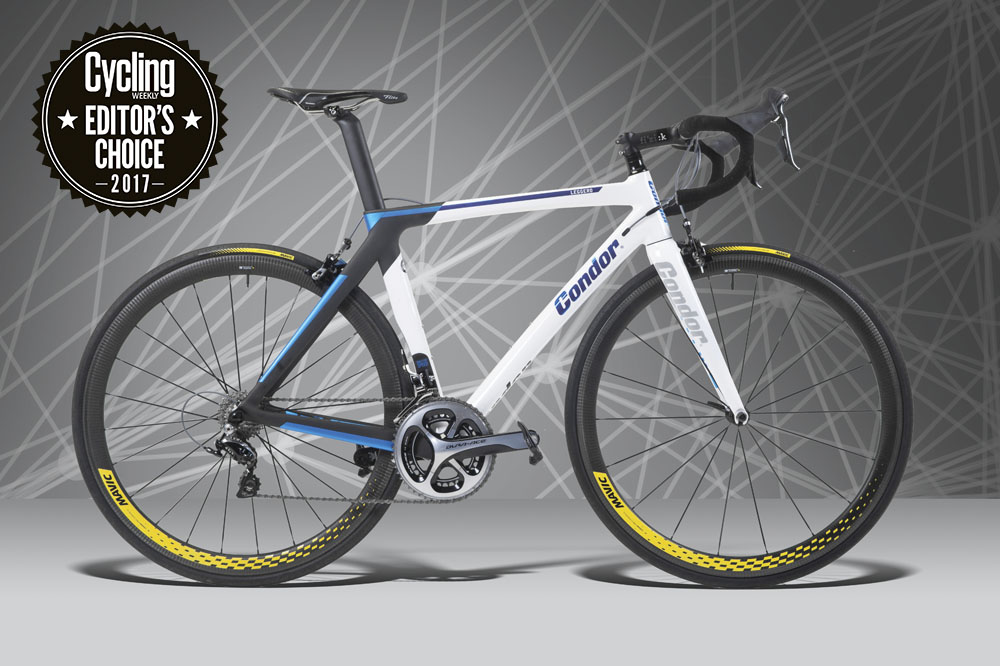
Condor is a household name within British cycling and the London brand has sponsored a team in one guise or another for years – currently JLT Condor with the Condor Leggero. As true pillar of the London cycling community, it also supplies track bikes for the Lee Valley and Herne Hill velodromes, making it a real grass roots supporter as well as a producer of top quality frames. This coupled with its excellent tailored services as well as off-the-peg framesets and complete builds gets it a spot on Cycling Weekly's 2017 Editors Choice.
The Condor Leggero is the weapon of choice for the JLT Condor team, and its the aero frame in Condor's expansive range.
Buttery smooth ride
It's a company known for experimenting, matching various frame styles with various frame materials – all giving unique riding qualities and the Leggero's is buttery smooth over our rough UK roads.
But while this quality performance is the Leggero's keynote – it promises to be light, agile and aero – what it also delivers is great looks, and it has been turning heads wherever I've been testing it.
Condor says the Leggero has been specifically crafted not only for performance and to be aerodynamic but also to be enjoyable and comfortable to ride. The recipe is a mix of high-quality carbon to ensure the Leggero is stiff, lightweight and compliant.
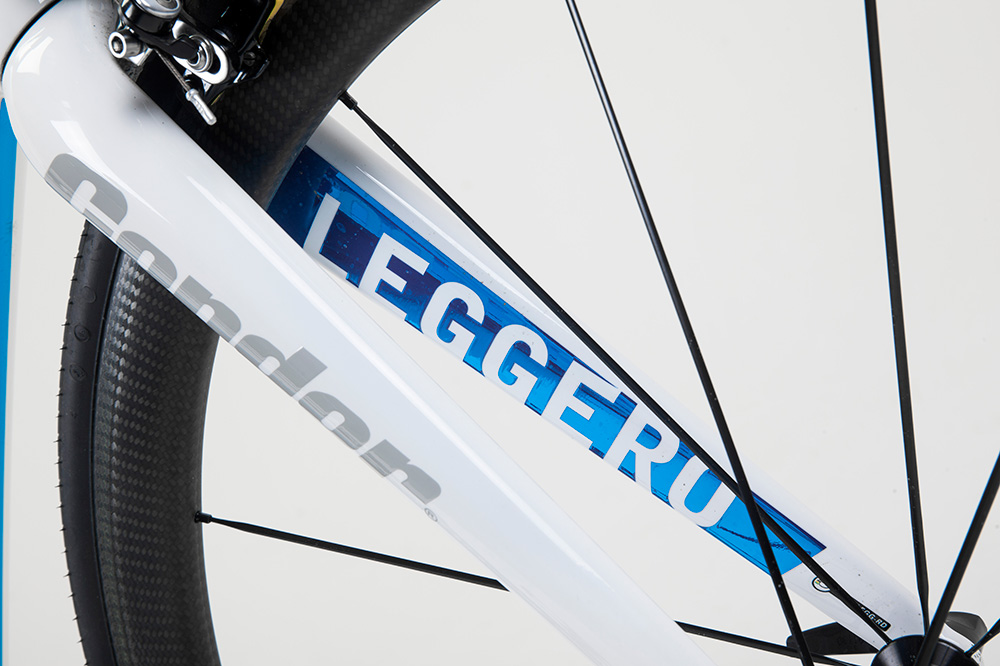
A mix of high and ultra-high modulus as well as unidirectional carbon is bonded by nano resins and it's this, according to Condor, which helps disperse vibrations effectively and gives the Condor Leggero its great ride feel.
Aerodynamics and performance are helped by key details on the Condor Leggero frame. A Kamm-tail aero seat tube improves airflow with an optimised flat rear triangle which also increases stiffness, says Condor, aiding power transfer and acceleration.
The best characteristic of the Condor Leggoro frame is the quality of its ride. More than any other bike we've ridden, even with deep carbon wheels and skinny tyres, the Leggero rides beautifully over typical British roads.
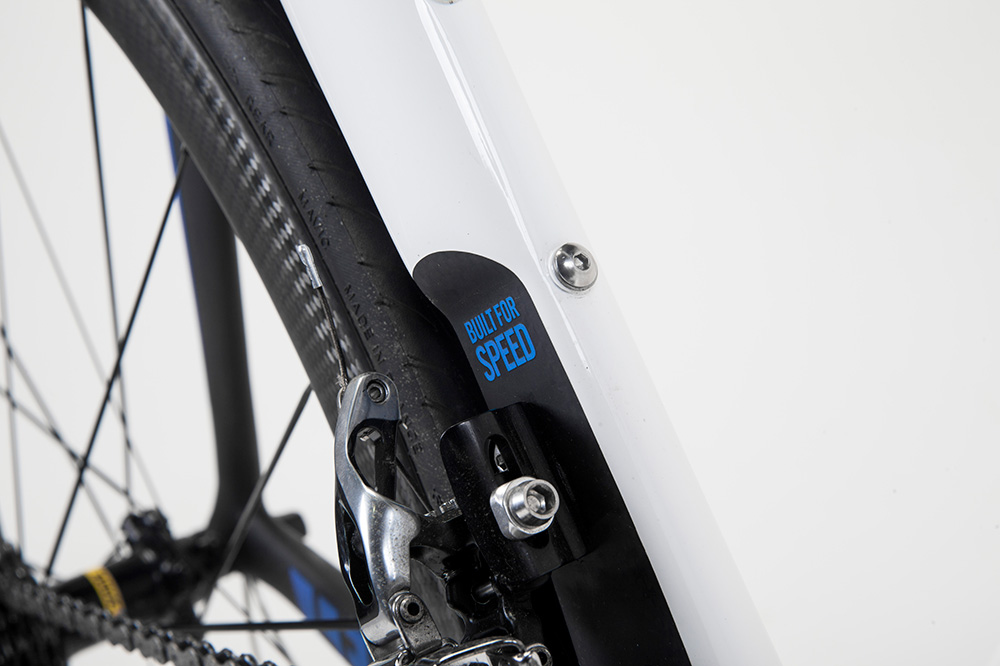
Vibration from the road is minimal: it's like riding on freshly laid Spanish tarmac even when you're on the horrid broken roads of Surrey and Kent.
As any poor local riders will know, such roads are usually at the detriment of precision and handling but the Condor Leggero remains poised, it lets you know where you are in terms of grip and it's racy – you can really chuck it into sharp turns and steep descents. We were immensely impressed.
The only real let-down with the Condor is weight: 7.45kg complete for the small size we used is a little heavy. You don't feel this weight while riding and it isn't exactly a heifer, of course, but compare it to Ribble's new SL which is under 6.8kg for a larger size and the Cannondale SuperSix-Evo again under the UCI weight limit for two sizes bigger.
In the grand scheme of things its a very small chink in an immensely impressive suit of armour. Besides, one of the benefits of it being a frameset is that there's plenty of opportunities to make it lighter.
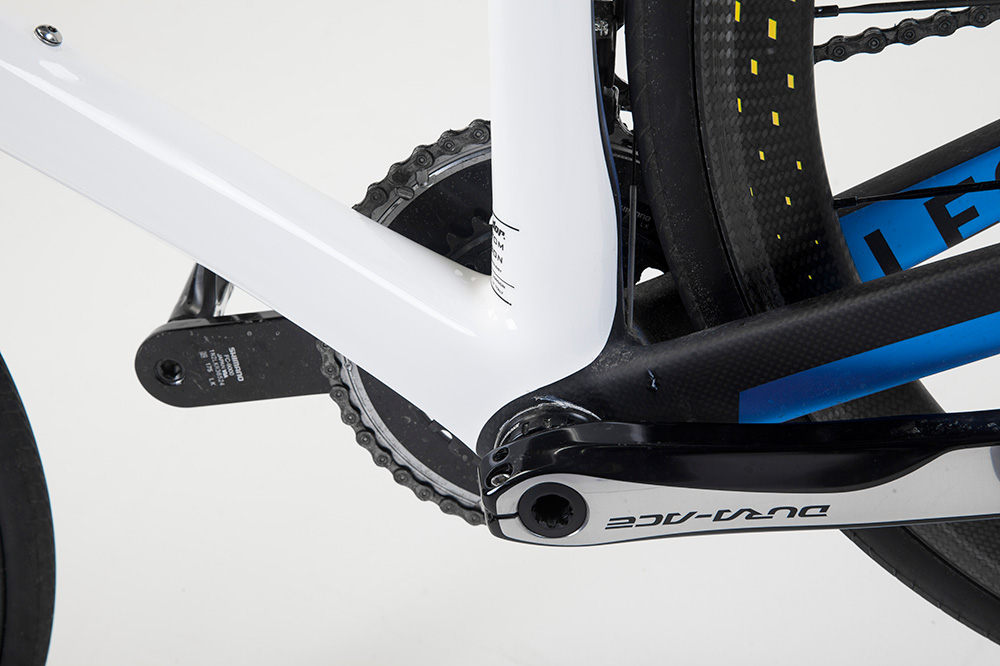
This is a test of the frameset, and as exceptional as it was, to ride it we needed it built. Condor kindly specced the Leggero with Shimano Dura-Ace 9000 (mechanical) with a Fizik Cyrano R3 stem, R3 Chameleon handlebars, Selle Italia Flite Ti and finally Mavic Cosmic 40 SL C with Mavic's own tyres.
This build comes out at £5,850, though of course you would be able to cut this down with lower-spec items across the board. The wheelest, for example, could easily be replaced with a shallower option – something we would do in a heartbeat.
As you'd expect, this lavish spec performs well. The Shimano Dura-Ace, although recently updated, still works effortlessly and provides exceptional performance. The wheels feel fast, roll very well, but probably aren't suitable to everyday riding. We swapped these Mavics out for a pair of Fulcrum Racing Zero Carbons, which helped agility and would be what we'd go for if buying this bike.
At £2,999.99 for the Condor Leggero frameset and fork you are paying a premium for this Condor Leggero and £5,850 for this complete build again is pushing the boundaries of anyone's disposable income, even that of the most dedicated cyclist.
However, originality comes at a price, and so does a nicely crafted frame that can be built bespoke to your needs. Buying a Condor buys you and invitation to its store to talk through your ideas to ensure you create something truly special, something of a personalised service that is not readily available within today's bike industry.

Thank you for reading 20 articles this month* Join now for unlimited access
Enjoy your first month for just £1 / $1 / €1
*Read 5 free articles per month without a subscription

Join now for unlimited access
Try first month for just £1 / $1 / €1
Get The Leadout Newsletter
The latest race content, interviews, features, reviews and expert buying guides, direct to your inbox!
Symon Lewis joined Cycling Weekly as an Editorial Assistant in 2010, he went on to become a Tech Writer in 2014 before being promoted to Tech Editor in 2015 before taking on a role managing Video and Tech in 2019. Lewis discovered cycling via Herne Hill Velodrome, where he was renowned for his prolific performances, and spent two years as a coach at the South London velodrome.
-
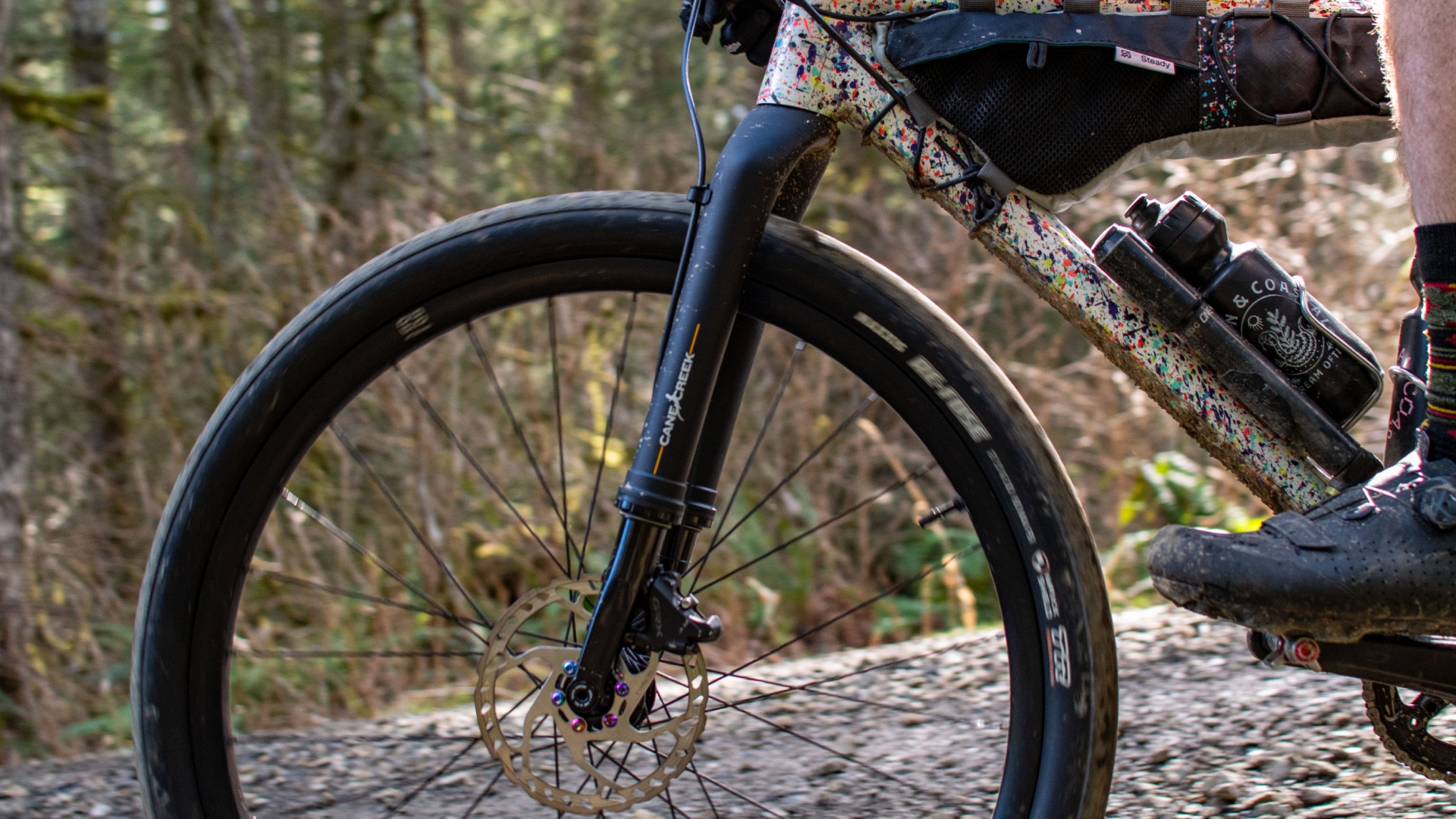 Review: Cane Creek says it made the world’s first gravel fork — but what is a gravel fork, and how does it ride?
Review: Cane Creek says it made the world’s first gravel fork — but what is a gravel fork, and how does it ride?Cane Creek claims its new fork covers the gravel category better than the mini MTB forks from RockShox and Fox, but at this price, we expected more.
By Charlie Kohlmeier
-
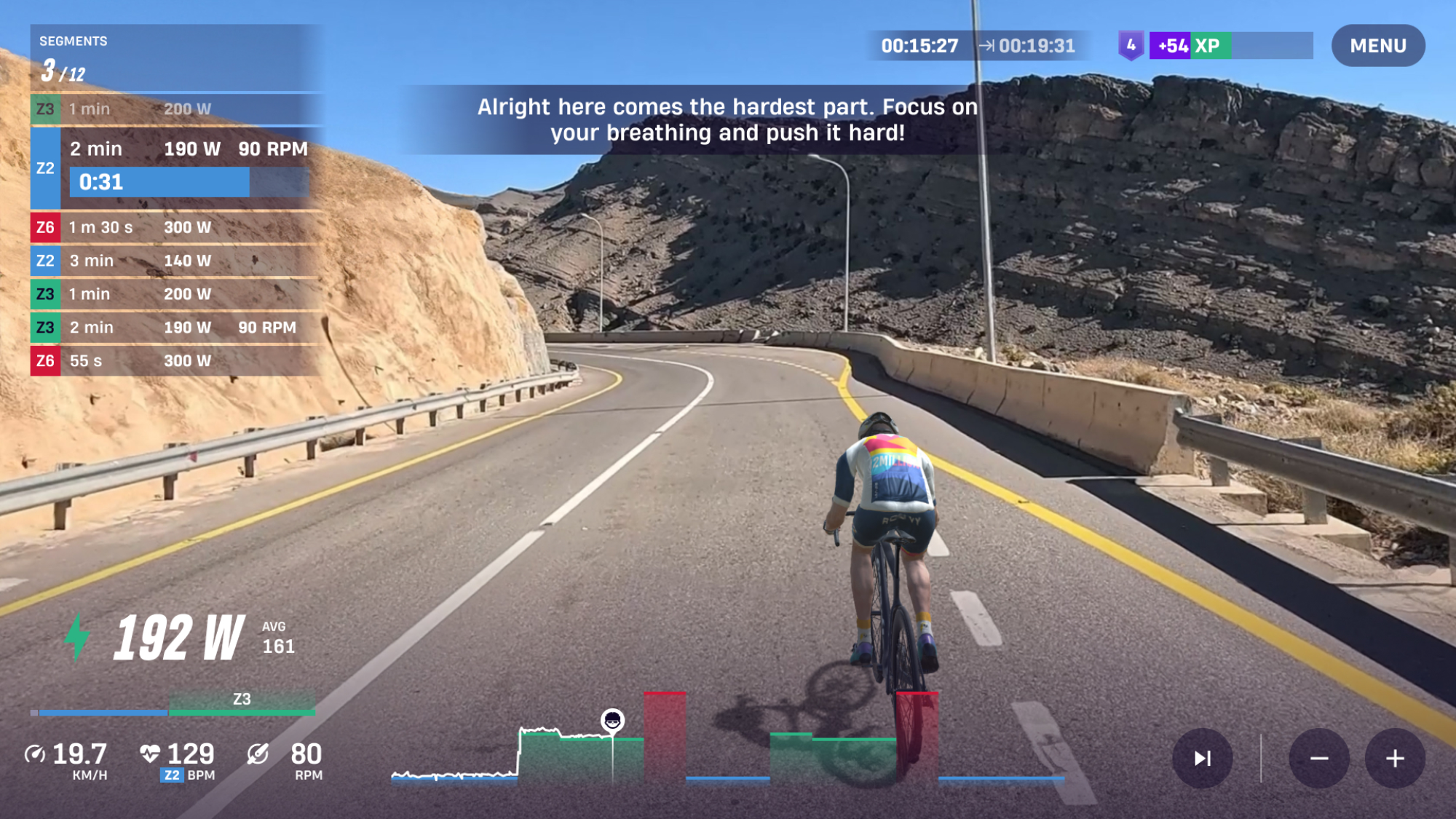 ROUVY's augmented reality Route Creator platform is now available to everyone
ROUVY's augmented reality Route Creator platform is now available to everyoneRoute Creator allows you to map out your home roads using a camera, and then ride them from your living room
By Joe Baker